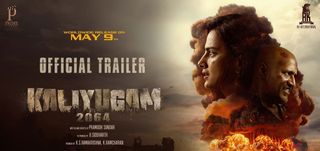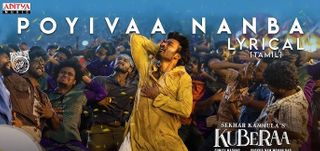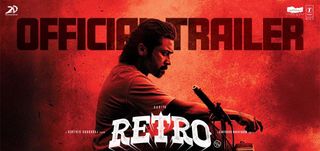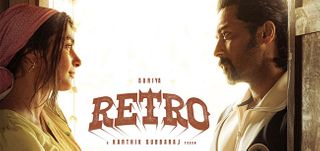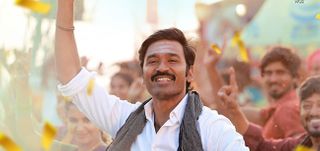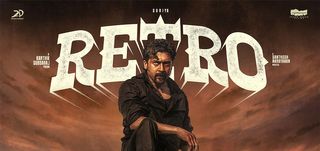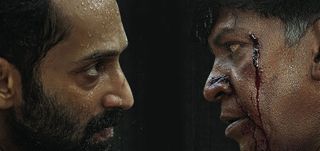
Aravaan Movie Review
Film-making heavyweight Vasanthabalan has Veyil and Angadi Theru under his belt. Two films were enough for to earn him the reputation as one of the few important film-makers working in Kollywood. Veyil won a national award and was sent to represent the country at the Cannes International Film Festival in 2007. With Angadi Theru, he outdid himself. It just missed the cut as India's official entry to the Oscars and was the most compelling film I had seen in 2010. Commercially, both films struck gold. Take into account that both movies released four years apart and you can conclude that Vasanthabalan is someone who marches to the beat of his own drum. With all of this experience as a viewer, it's impossible to walk into Aravaan without expectations.
An artist is gauged by his body of work and he comes with that baggage. Aravaan has nothing of Vasanthabalan in it. Vasanthabalan showed some surprising perceptivity in his previous films. I don't see how such a person could've possibly made this. Aravaan is a wasted opportunity. What went wrong? I'm sure we could all chip in on that. If there's anything in the film that truly takes you by surprise, it is how things go so wrong.
An odd-sounding sneeze is the first halt experienced by the viewer in this ride. I thought to myself "Nevermind," and got on with it. Someone gets kicked and hangs in mid-air for almost a second before falling aground. This was seriously pushing it but I chose to bite the bullet. Aadhi is pushed off a multi-storeyed palace. Before he lands, Aravaan cuts to a scene that has Aadhi tied to a tree by a thin grapevine crying in that comic way viewers respond to by laughing, simply because it's to be laughed at. How could you not question logic in this sequence of scenes? Slap-stick comedy? From such a fierce director? Sadly, yes. And the viewer is taken for granted. When there's so much work invested in the CG powered opening credits, why not look into these aspects? No one ever remembers the opening theme.
For most of the first half, I was a distant onlooker observing derails. There are certain sequences in the film that work. Like a well-staged bullfight that made me reconsider entraining Aravaan. Post intermission, Aravaan resumed with teleporting us to the lead character's past and enmeshing us in an interesting plot. A member of the neighbouring village is found dead and Aadhi becomes the scapegoat. The character makes its entry as a dead body. Using a well-known actor such as Bharath for this purpose is a misuse of cameo. Our mind instantly recognizes this dead body as the actor and we see him not as a dead body but as a living actor playing dead. Once again, we are thrown out of the Film's world. Aravaan should've been more focused on the plot and its dynamics. It could've done without the comedy. Character inconsistencies are obvious and switching between perspectives works against the movie than for it. We don't have to understand the plight of each and every character, especially when we're concerned with just one character who himself is caught up in his own death sentence. His horny wife manipulates him into sleeping with her by laying guilt trips which makes him take the altruistic task of evading his death-sentence upon himself, for her sake. This grotesque act is followed by an upbeat song that aims to lift the spirits of the viewers, settling with shrinking their every hope. The dialogue doesn't sound like stuff real people would say. These 18th century inhabitants say the most Kollywood things in the most Kollywood way.
Aadhi shows promise and that is all the film can offer him. Pasupathy is equally good, being the only other actor here who leaves a mark. Aravaan is surprisingly easy to sit through, though. Maybe because it has an authentic look, maybe because the good parts are rightfully spaced out, maybe because the actors are ripped, maybe because the story is interesting, maybe all of the above. But towards the end, it gets excessively melodramatic and you wish you could teach Vasanthabalan a thing or two about restraint. Angadi Theru wasn't restrained; it was driven by Vasanthabalan's burning passion for the material in hand and empathy for characters. That's where you don't pull a punch and heck, it worked wonders. Here, it sticks out like a sore thumb.
The sets are authentic and the actors look like they're from the period it is set in. However, the cinematography and editing are needlessly bombastic. They're more of a distraction than a support, especially in the over-the-top fight sequences. A huge chunk of the film is aided by visual effects (which look like visual effects) and insignificant music. The structure of the plot wavers between the past and the present. It is an accepted form of storytelling but not here, when the present is hardly of any interest.










